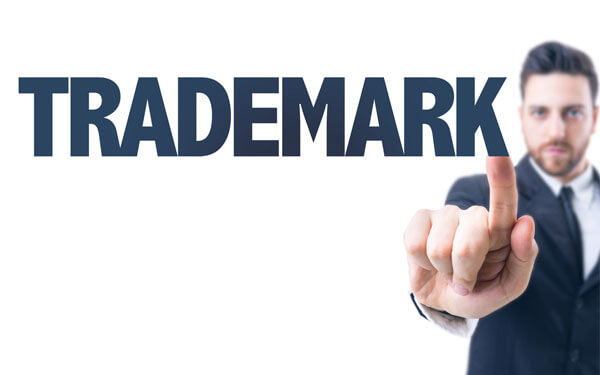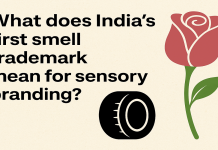This article has been written by Aishwarya Parameshwaran, pursuing the Diploma in Intellectual Property, Media, and Entertainment Laws from LawSikho. The article has been edited by Aatima Bhatia (Associate, LawSikho) and Ruchika Mohapatra (Associate, LawSikho).
Table of Contents
Introduction
The Trademarks Act, 1999 is the statutory legislation that comprehensively deals with trademarks in India. All marks, logos, symbols, or brands that are distinct and distinguish themselves from other goods and services are termed as ‘Trademarks’. As per the Trademarks Act, 1999, it is not mandatory to register trademarks in India. Many people who are not aware of the benefits of registering their trademark do not register their trademark. Many of them also think that it is a tedious process and neglect registration. Therefore, in India, there are multiple registered and unregistered trademarks.
What are unregistered trademarks and how is it different from registered trademarks?
Before we compare registered and unregistered trademarks, let’s first understand what are registered and unregistered trademarks and the legal recognition one gets after such registration.
Registered trademark
A trademark registered under the Trademark Act, 1999 confers exclusive rights upon the owner of such a registered trademark. Upon registration, his ownership over such a trademark becomes the prima facie evidence. Additionally, he gets to use such marks exclusively under the class of items it has been registered under. Once the trademark is registered, its validity remains for 10 years and further, the trademark needs to be renewed.
Suppose a third party uses a registered trademark illegitimately, then such use shall amount to trademark infringement. The owner of such registered trademark can institute a suit for infringement under the Trademarks Act, 1999. Such a suit for infringement can be civil or criminal.
Unregistered trademark
As we discussed previously, registration of a trademark is not mandatory as per the Act, so the trademarks that are not registered are called unregistered trademarks. It can be used with respect to goods and services. However, the protection that they get under law is very limited as compared to the legal protection given to registered trademarks.
Suppose if a third party makes illegitimate use of an unregistered trademark, it shall not amount to infringement of the trademark. Therefore, in such cases, a suit for infringement under the Trademark Act, 1999 cannot be initiated. The remedy available with the owner of an unregistered trademark is ‘Passing off’ under the law of torts.
A major concern in the cases of passing off is that it is essential to establish in the court that such an unregistered trademark has a reputation in the market and can be easily distinguished under the class of goods, business, or service for which it is used. Diagrammatic representation of the difference between registered and unregistered trademarks:
| Sr No. | Basis | Registered trademark | Unregistered trademark |
| 1 | Meaning | When a symbol, sign, word etc is registered by its owner as the provisions given under the Trademark Act, 1999 then such mark is called a registered trademark. | When a symbol, sign, or word is used by the owner but not registered as per the provisions of the Trademark Act, 1999 then such a mark is called an unregistered trademark. |
| 2 | Protection under | Protection of registered trademarks is provided under Trademark Act, 1999. | Protection of unregistered trademarks is provided under common law. |
| 3 | Burden of proof | Once the mark is registered, the burden of proof of its early use on the opponent. | When the mark is not registered, the burden of proof of early use lies on the owner himself. |
| 4 | Remedy | A suit for infringement can be instituted. | Suits for passing off can be instituted. |
| 5 | Symbol | An owner of a registered trademark TM symbol upon application of registration. Once the mark gets registered, the owner can use the symbol, which signifies that the registration of the mark is complete as per the provisions of the Act. | The user of an unregistered trademark can use TM symbol but not |
Protection of unregistered trademark under Trademark Act, 1999
Although unregistered trademark’s illegitimate use has a remedy in law in the name of passing off under the law of torts, it has very limited statutory protection under the Trademark Act, 1999.
Section 34 and Section 35 of the Trademark Act, 1999 gives statutory protection to unregistered trademarks. These sections safeguard the interest of an unregistered trademark by simply stating that a prior user of a trademark will get priority over subsequent users, despite being registered.
Therefore, even though the Trademark Act, 1999 does not provide any statutory remedy for illegitimate use of unregistered trademarks, it aims to protect the interests of a bonafide user of such mark on the basis of prior use. This section safeguards the interests of prior users and encourages them to continue their business without the fear of being sued for infringement of the mark by a subsequent registered user of an identical mark.
Protection of unregistered mark under common law
Previously, we already discussed how a remedy for illegitimate use of an unregistered mark is by way of passing it off under common law. Now, let’s understand what is passing off and how does common law protect the interests of an unregistered trademark user.
In the case of Perry v Truefitt (1842), it was decided that ‘One should not sell goods under the pretext that they are of another’ a principle upon which an action against passing off is based on. The intent of this law is that one should not misrepresent the item to be someone else’s. The reason is, a brand creates trust within its consumers and a lot goes into creating this brand value in the market. So, by simply using an identical trademark, one must not misrepresent the consumers it to be of another.
In simple words, passing off is nothing but an unfair trade practice through which one seeks to attract consumers and seek profits from the brand value created by another existing brand in the market. If it becomes evident that the defendant willingly wanted to deceive and mislead the general public, an action against passing off shall become successful.
Essentials of passing off
In order to take any action against passing off, it is necessary that the following essentials are met by the unregistered user of the trademark.
Good will
An unregistered trademark must have some goodwill and reputation in the market that means, people should recognise such a mark. When an action for passing off is instituted, the person instituting i.e. the owner of an unregistered trademark has the burden to prove that his mark has acquired a distinguished reputation in the market. Now, this market can mean at the local or international territorial level.
Prior use
Even if the first essential requirement is met, the unregistered trademark user cannot succeed in the action taken against passing off, the reason being Section 34 and 35 of the Trademark Act, 1999 makes it clear that a prior user of the trademark will get priority over subsequent users, although the subsequent might be registered. Thus, in order to protect one’s interests over an unregistered trademark, the user will have to prove that he had prior use over the mark and hence he is eligible for taking an action against passing off.
Damages
The party instituting an action against passing off needs to prove that such passing off by a third party has caused him actual damage in business and profit due to the misrepresentation. It is generally difficult to prove this requirement and requires the inspection of accounts of books.
Analysis
Even though the Trademark Act, 1999 along with common law remedies has provided an unregistered trademark owner with some rights and remedies, at the same time it burdens him. It may seem that action against passing off is sufficient protection to the unregistered trademark owner, but there are still the essentials that need to be met. If the owner fails to meet any one of the two essentials, then the remedy shall not be provided to him. A provision must be added in the Trademark Act, 1999 wherein, after determination of the passing off case by the court, the court should find the party responsible for passing off with penalties. This would create a deterrent effect on the party making false representation and shall refrain others from using such ill tactics of the trade.
Conclusion
Trademark is the identity of a brand and a product. One must be very conscious and aware of the rights arising from such a trademark. In order to enjoy the bundle of rights provided under the Trademarks Act, 1999 it is advisable that such a person registers his trademark. The reason, being although the Trademark Act, 1999 talks about unregistered marks, the rights of an owner of an unregistered trademark are very limited.
It is only due to common law which is nothing but judge-made law, that the unregistered user of trademark has at least the remedy of taking an action against passing off. And even to avail of this remedy, the user will have to prove that his use was significant along with the other essentials specified in this article.
It is only because of the absence of concrete provisions with respect to unregistered trademarks that the cases related to the subject matter are highly dependent on judicial decisions. So, unless a precedent is delivered by the Supreme Court or High Courts or an amendment in the Trademark Act, 1999, the laws pertaining to unregistered trade shall remain the same.
References
- https://blog.ipleaders.in/protection-unused-unregistered-marks/
- https://www.mondaq.com/india/trademark/537964/difference-between-unregistered-and-registered-trademark
- https://www.intepat.com/blog/trademark/unregistered-vs-registered-trademark/?utm_source=Mondaq&utm_medium=syndication&utm_campaign=LinkedIn-integration
- https://keydifferences.com/difference-between-registered-and-unregistered-trademark.html
Students of Lawsikho courses regularly produce writing assignments and work on practical exercises as a part of their coursework and develop themselves in real-life practical skills.
LawSikho has created a telegram group for exchanging legal knowledge, referrals, and various opportunities. You can click on this link and join:
https://t.me/joinchat/L9vr7LmS9pJjYTQ9
Follow us on Instagram and subscribe to our YouTube channel for more amazing legal content.
 Serato DJ Crack 2025Serato DJ PRO Crack
Serato DJ Crack 2025Serato DJ PRO Crack











 Allow notifications
Allow notifications


